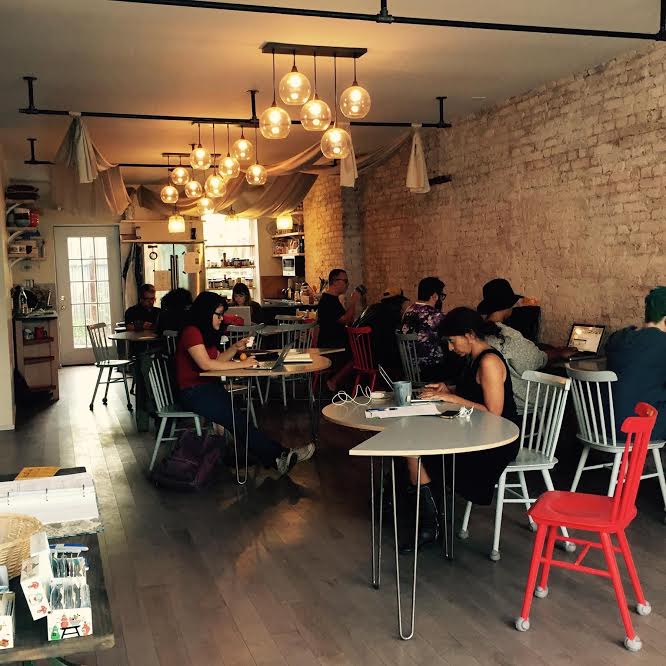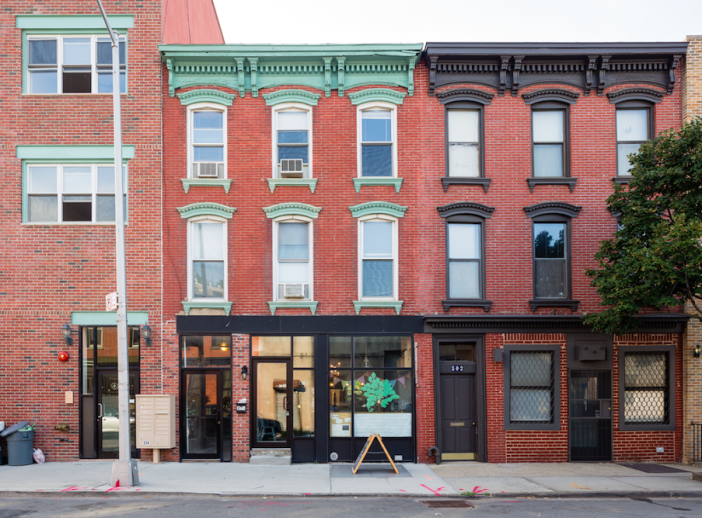St. Lydia’s And The Progressive Protestant Co-Working Ethic


The church reaches all aspects of the life cycle, and at St. Lydia’s, that reach includes co-working and event planning.
The progressive Lutheran dinner-church, through foresight and serendipity, found a home in 2014 at 304 Bond Street (between Union and Sackett Streets) with a 1,000-square-foot space that has come to serve as many purposes as both parishioners and community members need.
Co-working was the plan as the sustainability model for the church, and it’s very intentionally a place for people of any or no faith. The space makes the money to pay the rent but it also fits the philosophy of community engagement,” said Julie Stroud, the community coordinator of St. Lydia’s.
The goal of the co-working space is to foster a sense of community around its members, who pay dues starting at $80 a month for eight hours.
St. Lydia’s was founded by St. Lydia’s Pastor Emily Scott in collaboration with Rachel Pollack in 2009. The first meetings were in apartments where they cooked while communing. Things have grown from there. St. Lydia’s found its current location, its first permanent space, in 2014 with the help of crowdfunding that raised $30,000.
The growth of St. Lydia’s as an event space was far more organic.
“It began with friends of the members of the church asking to rent it out and then gained a more popularity,” said St. Lydia’s event planner, Jason Knight.
The space can be rented out for $100.00 an hour and is open to all members of the community.

Stroud added that “co-working leads to relationships that you wouldn’t otherwise make. Lots of churches are in these big buildings and they only interact with other church people and Emily was experiencing working with other kinds of creative people.” She said that Scott and Pollack, who were both working out of co-working spaces,” really loved the collaborative atmosphere and they saw a lot of different ways that co-working could work.”
That’s clearly taken root at St. Lydia’s, where a community is growing around worship, work, food, and any other event in the life cycle.




